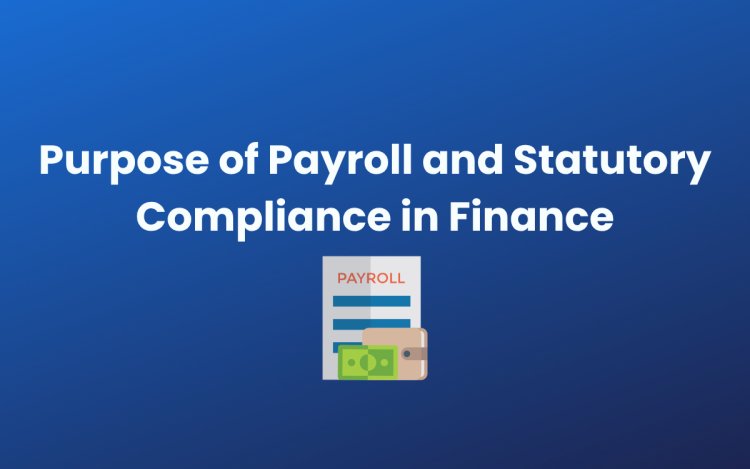Payroll and statutory compliance are fundamental to running a lawful and efficient business. These processes ensure employees are compensated correctly and on time while the organization adheres to applicable laws and regulations. Together, they support employee satisfaction, financial stability, and legal integrity.
What Is Payroll?
Payroll is the structured process of calculating and disbursing salaries, wages, bonuses, and statutory deductions such as TDS, PF, ESI, and professional tax. It's not just about issuing payments—it's a core component of business finance.
A Functional Payroll System:
-
Maintains employee trust and morale
-
Helps manage operating cash flow
-
Supports accurate financial documentation
-
Ensures compliance with labor and tax laws
What Is Statutory Compliance?
Statutory compliance means adhering to employment and taxation laws enforced by government authorities. It protects the business from legal liabilities and promotes transparent employment practices.
Key Compliance Areas:
-
Tax Obligations: Timely deduction and payment of taxes like TDS, PF, ESI, and professional tax
-
Labor Laws: Observance of rules on minimum wage, overtime, gratuity, maternity benefits, etc.
-
Reporting Standards: Accurate filing of statutory reports and audit documents
Compliance ensures a business remains legally protected and audit-ready.
Why Are Payroll and Compliance Important?
When integrated, payroll and compliance reduce legal exposure and help streamline internal processes. They ensure that employee payments, benefits, and tax obligations are managed accurately and in line with law.
Why It Matters:
-
Avoid Legal Risks: Prevent fines, litigation, and license-related issues
-
Maintain Tax Discipline: Ensure correct deductions and deposits
-
Protect Employee Rights: Offer mandatory benefits like PF, ESI, and paid leave
-
Build Organizational Trust: Be seen as fair and compliant by staff and authorities
-
Reduce Operational Interruptions: Avoid workflow disruptions due to non-compliance
Benefits of Payroll and Statutory Compliance
| Benefit | Description |
|---|---|
| Legal Assurance | Prevents legal penalties through timely compliance |
| Accurate Tax Handling | Helps in precise deduction and payment of employee-related taxes |
| Employee Welfare | Provides social security schemes like PF, ESI, gratuity, etc. |
| Business Reputation | Establishes the organization as responsible and trustworthy |
| Workplace Transparency | Encourages ethical practices and proper documentation |
| Operational Stability |
Avoids disruptions caused by compliance lapses |
Final Thoughts
Payroll and statutory compliance form a critical part of responsible business management. They ensure employees receive their rightful pay and benefits while keeping the business aligned with tax and labor regulations. A consistent approach to payroll and compliance protects the organization and promotes a trustworthy work culture.
Frequently Asked Questions (FAQs)
1. What’s the main purpose of payroll in finance?
To calculate and pay employees correctly while tracking it as a significant business expense.
2. Why is timely payroll important?
It supports employee satisfaction, cash flow management, and financial accuracy.
3. What does statutory compliance mean?
It involves adhering to laws related to employment, tax payments, and social security.
4. What laws are included in statutory compliance?
Key laws include the Income Tax Act, EPF & ESI Acts, Minimum Wages Act, Payment of Gratuity Act, and professional tax rules.
5. Why combine payroll and compliance?
Together, they ensure financial accuracy, regulatory compliance, and staff welfare, minimizing legal and operational risks.
Need help managing payroll? Explore Our Payroll Solutions






